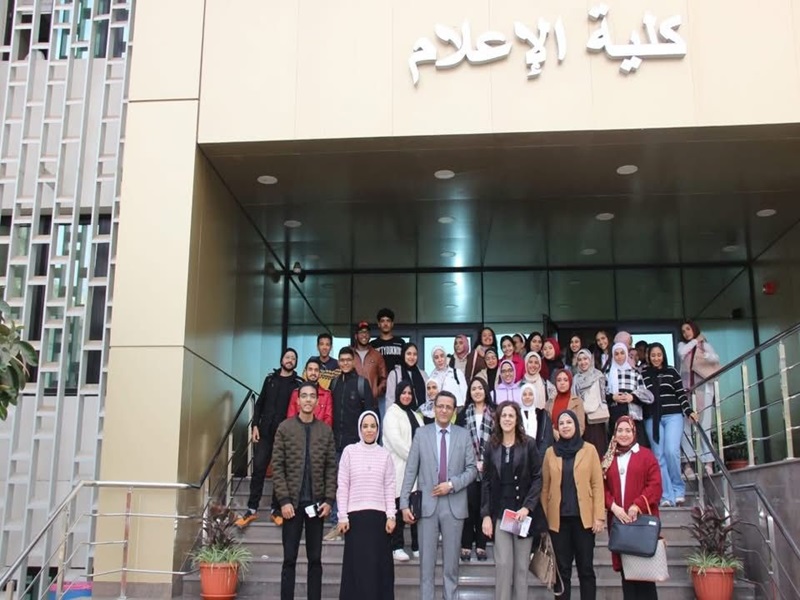"The Future of Journalism in Light of Technological and Legislative Challenges and Ways to Develop Journalistic Work" symposium at the Faculty of Mass of Communication
Under the patronage of Prof. Mohamed Diaa Zain El-Abedeen, President of Ain Shams University, and Prof. Ghada Farouk, Vice President of the University for Community Service and Environmental Development Affairs, and within the framework of the faculty's cultural and artistic season for the academic year 2024/2025, the Faculty of Mass Communication hosted a symposium entitled "The Future of Journalism in Light of Technological and Legislative Challenges and Ways to Develop Journalistic Work", Mr. Khaled El-Balshy, Head of the Journalists Syndicate, lectured at the symposium.
Prof. Heba Shaheen welcomed the Head of the Journalists Syndicate, explaining the role of the Journalists Syndicate in establishing the foundations of journalistic work over more than eighty years, describing the Syndicate as a long-standing symbol of Egyptian journalistic work since its establishment in 1941, and stressed the role of the journalism profession as a soft power that the Egyptian state relies on to enhance awareness and support national issues.
She also pointed out that journalism is the mother of media arts, as it forms the foundation on which various other media specializations are built, and as the foundation from which all radio and television media outlets are launched.
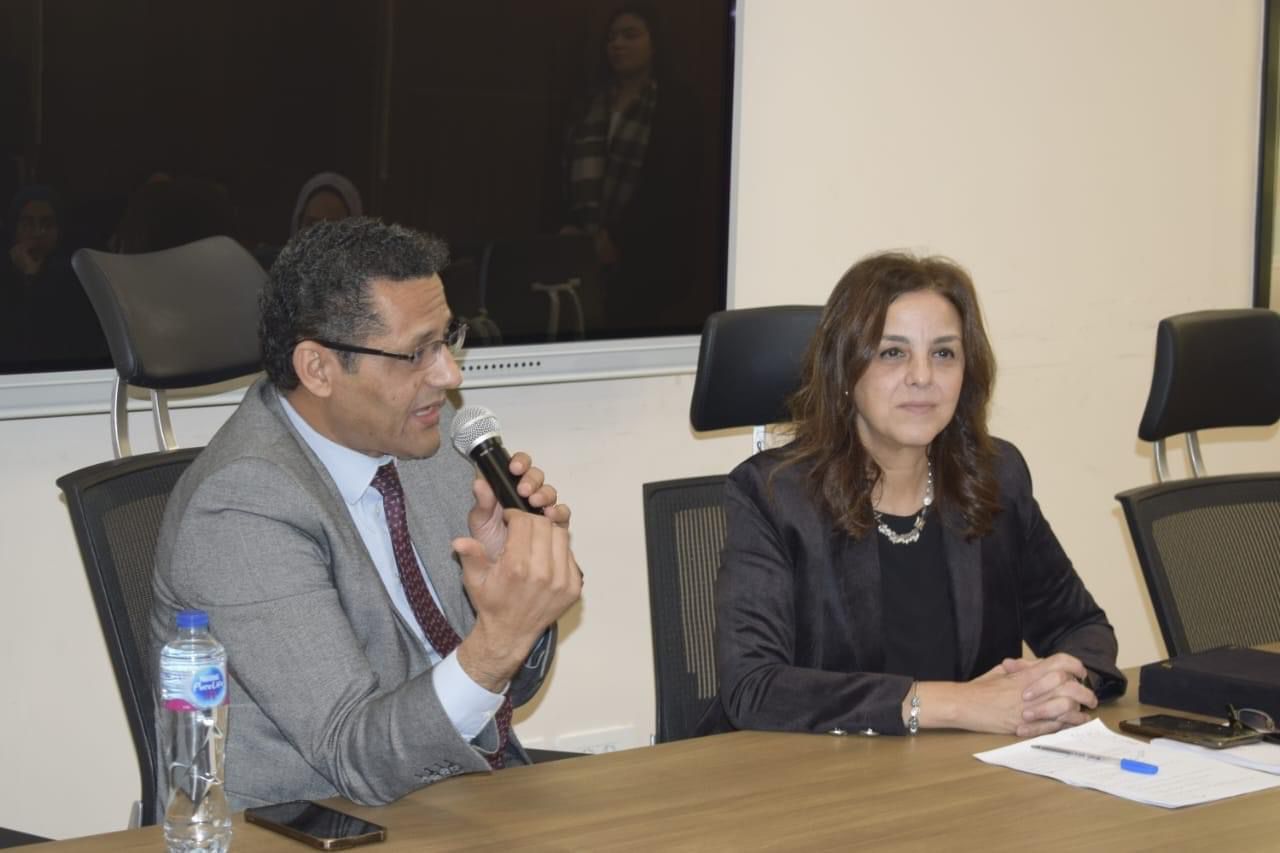 |
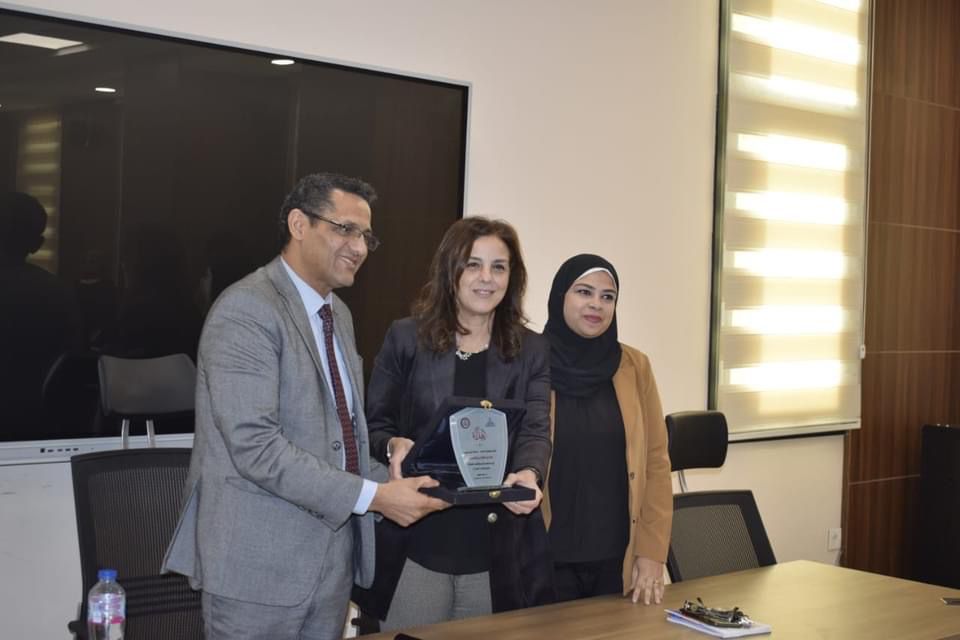 |
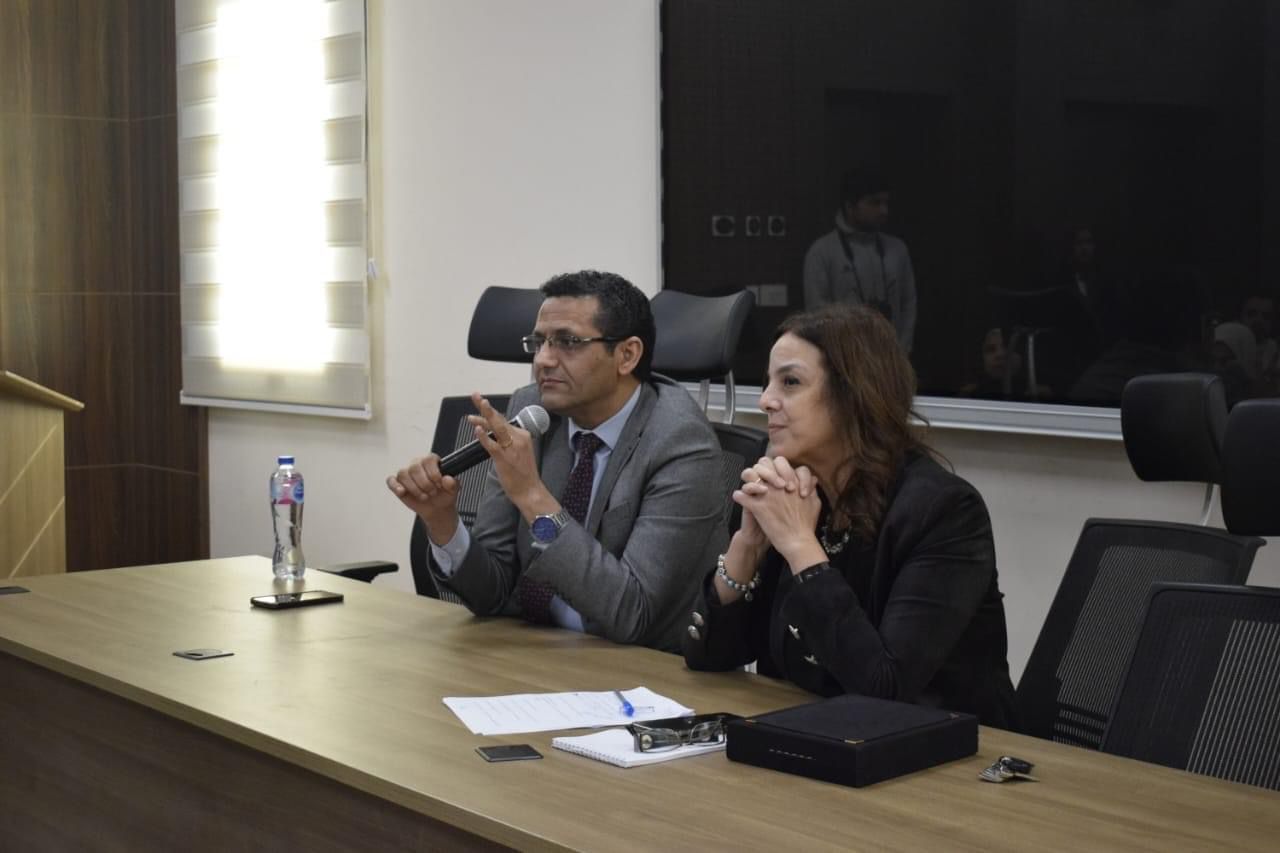 |
||
She stressed that the role of journalism is not limited to transmitting news only, but extends to providing distinguished content that enriches society and contributes to its development.
She explained the accelerating impact of technology on traditional journalism, as digital development has cast its shadow on print journalism, but has opened new horizons through websites and digital platforms.
She concluded her speech by emphasizing the importance of journalism adapting to modern changes, and the importance of continuing the journalism profession despite the challenges it faces, as it plays vital and influential roles in serving society.
Mr. Khaled Al-Balshy, Head of the Journalists Syndicate, addressed the issues of the journalism profession and its future in light of the rapid technological developments.
He stressed the importance of moving towards the labor market with rapid steps based on the basics of the journalistic profession. He pointed out that success in this field requires self-development, continuous production, and constructive competition.
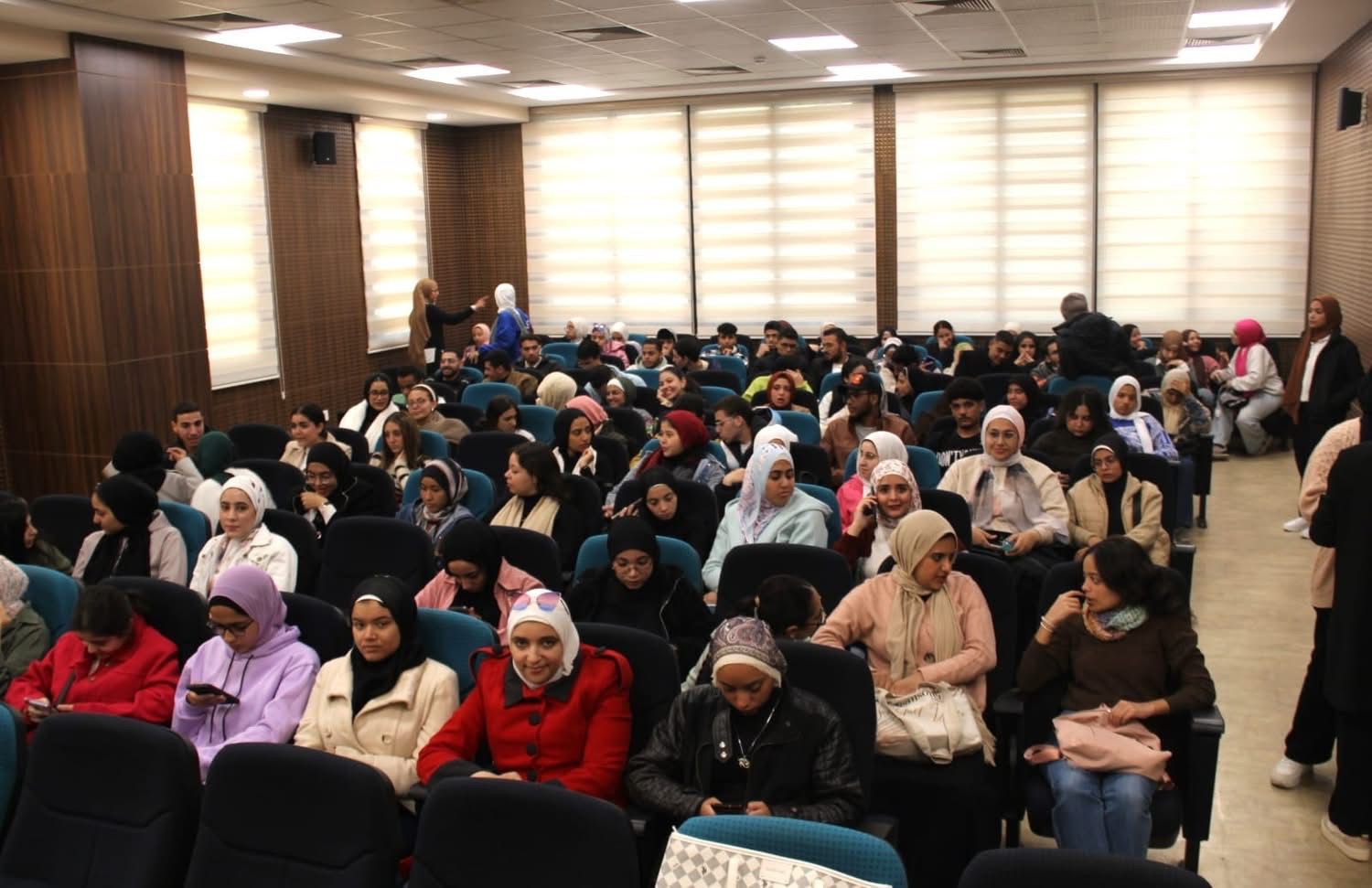 |
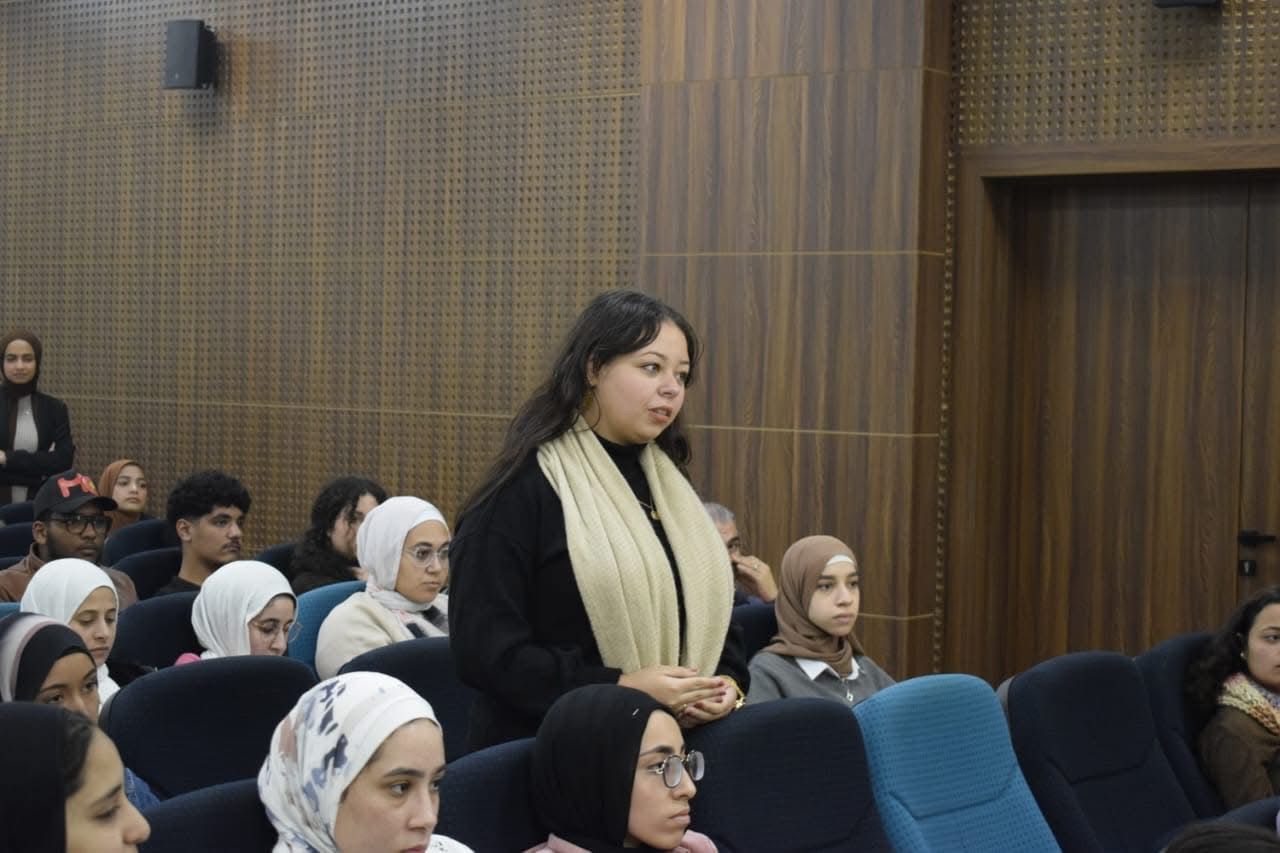 |
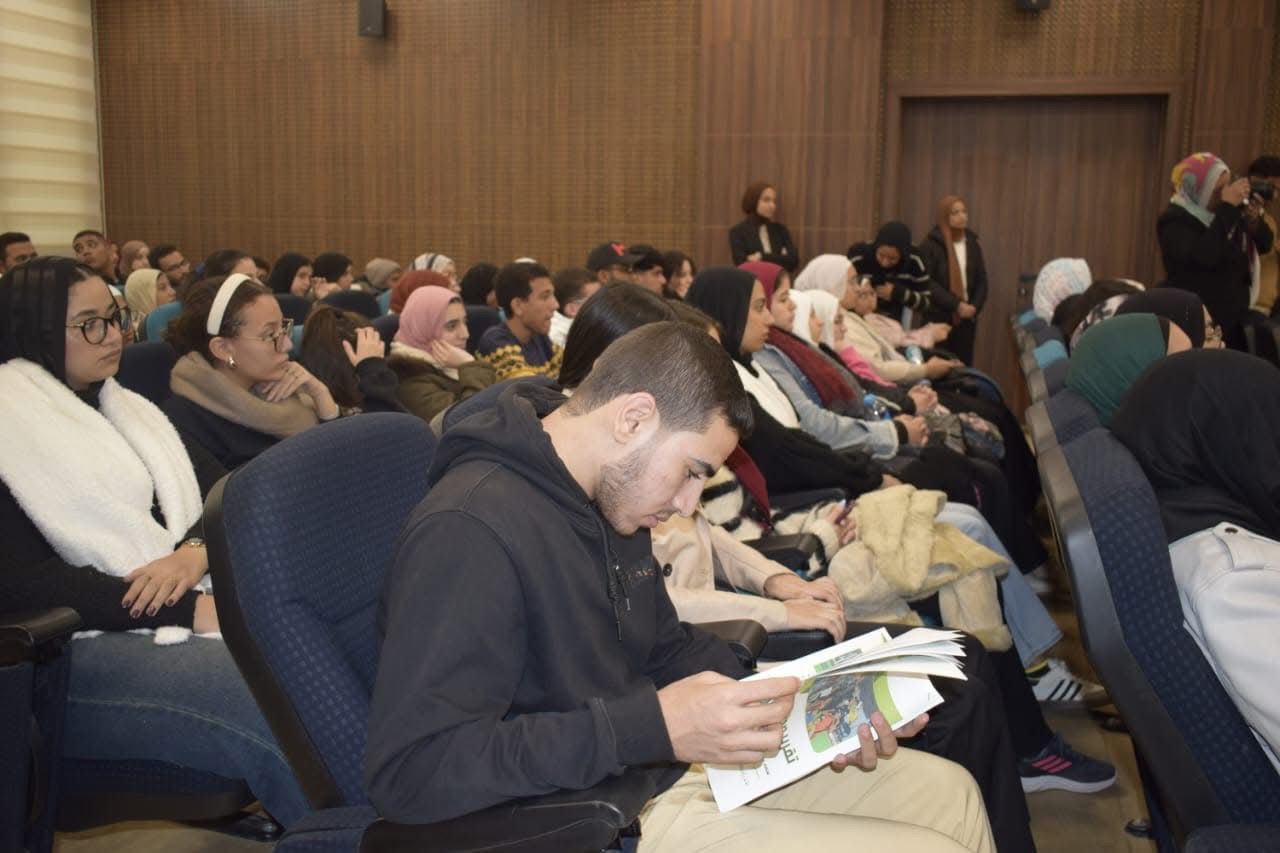 |
||
He stressed that studying humanities is an essential part of a journalist's education, as it provides tools that help in a deeper understanding of society and the ability to analyze events.
He added that the university stage is the basis for building a professional and cultural future, stressing the need to exploit it to read, interact with society, and communicate with others. He pointed out that a successful journalist is one who possesses broader information and a more comprehensive vision, which makes him able to provide distinguished content.
He also reviewed the history of the establishment of the Syndicate, noting that the efforts to establish it took several decades, and culminated in its official establishment in 1941.
He pointed out that the Syndicate has always been at the heart of the struggle to protect and develop the profession and preserve the rights of journalists and freedom of the press.
He also discussed in his speech the impact of technology on traditional journalism, stressing that electronic media have become an integral part of journalistic work, and that the correct use of technology opens up new horizons for creativity.
He also pointed out the impact of modern means in developing research methods and preparing journalistic materials.
He stressed that print journalism still maintains its role despite the challenges of the digital age, stressing the need to understand the nature of each media medium and how to benefit from it.
He also pointed out the significant role played by the Syndicate in training journalists through a training center equipped with the latest technologies, which provides its services to Syndicate members and non-union members, in addition to students.
He answered students' questions and listened to their points of view, expressing the Syndicate's interest in adopting new ideas that contribute to developing the profession.
The day's activities concluded that Prof. Heba Shaheen honored the Syndicate of Journalists, in appreciation of his efforts in developing the journalism profession and the Syndicate of Journalists.


.svg)

